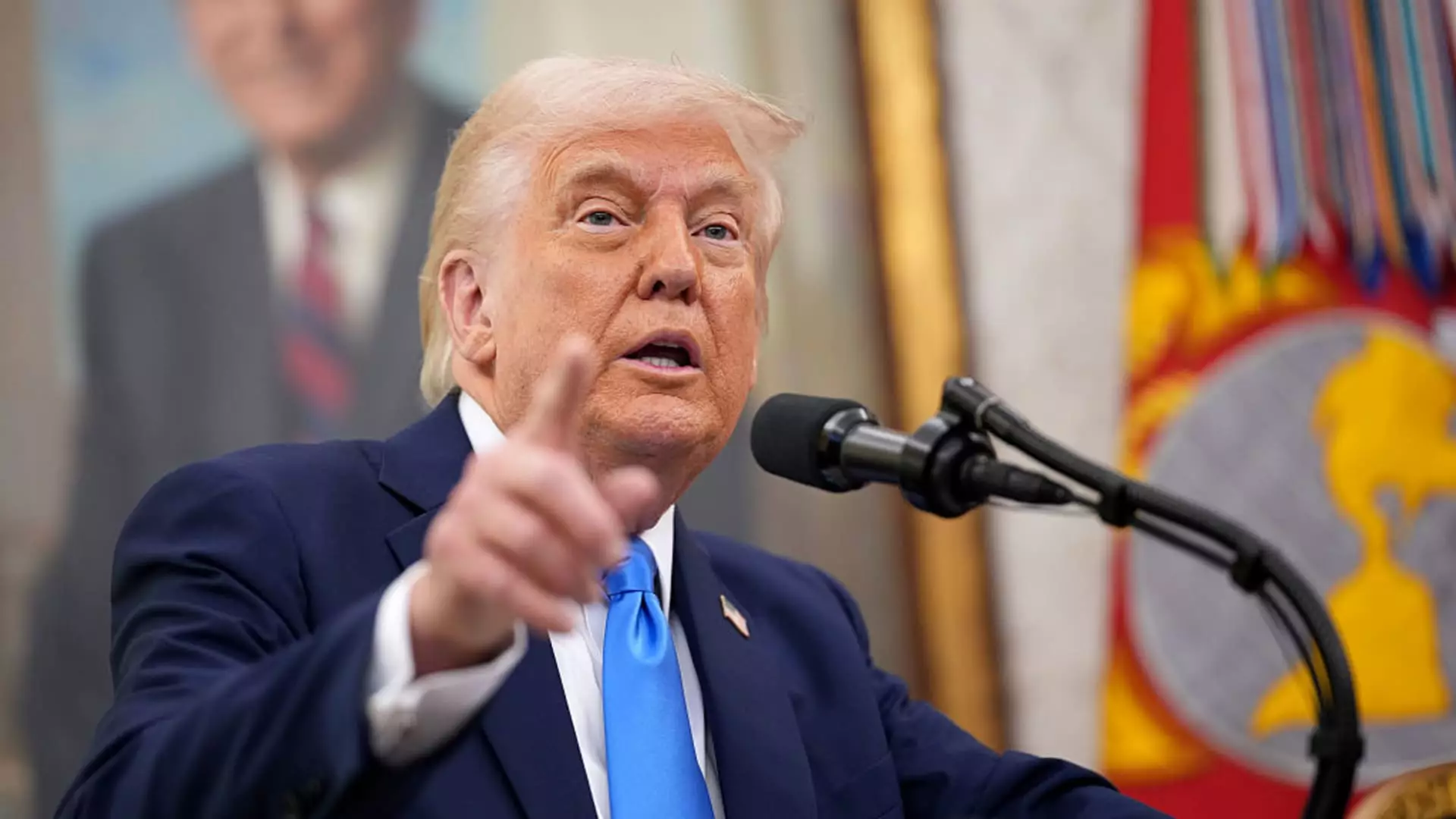As President Donald Trump approaches the announcement of his most extensive tariffs to date, a thick veil of uncertainty casts a shadow over the global economy. Scheduled to unveil what he has gloriously dubbed “reciprocal tariffs,” the actual mechanics and implications of these tariffs remain shrouded in ambiguity. This lack of clarity raises eyebrows—not just among economic analysts, but also within the ranks of the administration itself. It creates a disconcerting reality where there’s significant pain anticipated for numerous trade partners, but without a full understanding of which nations will be left grappling with the fallout.
Trump’s portrayal of this initiative as “America’s liberation day” serves as a stark contrast to the scientific calculations and strategies typically underpinning international trade decisions. Economic policy, ideally, should stem from rational analysis and predictive modelling, not hyperbolic rhetoric. Instead of offering a clear path forward, the muddled communication surrounding these tariffs is symptomatic of a larger issue: a disregard for the complex and interconnected fabric of the global economy.
The “Dirty 15”: Playing Games with Trade Policy
Treasury Secretary Scott Bessent’s mention of the so-called “Dirty 15” only adds further complexity to an already intricate situation. This term, used to describe nations that represent a disproportionate share of the U.S. trade deficit while imposing substantial tariffs on American goods, seems to be an arbitrary classification, lacking specificity and clarity. Why not openly name these countries? Is the administration hesitant due to their strategic alliances or economic importance?
In subsequent remarks, Kevin Hassett proposed focusing on a manageable group of 10 to 15 nations contributing to the extensive U.S. trade deficit. The vagueness of both terms—“Dirty 15” and “manageable group”—serve to perpetuate confusion among lawmakers, economists, and average citizens alike. A productive trade policy cannot be guided by sweeping generalizations; it requires a granular understanding of international relations and economic interdependencies.
A Misguided Approach to Trade Deficits
One of the core justifications Trump has offered for this tariff-laden crusade is the argument that trade deficits signify a failure to protect American jobs and industry. This notion is problematic and reflects a misunderstanding of contemporary economics. Economists across the spectrum contend that trade deficits can indicate strong consumer demand and a competitive market in which American businesses might thrive by focusing on innovation rather than protectionism.
The administration’s fixation on reducing trade deficits echoes a sentiment rooted more in populist rhetoric than in economic theory. Many countries import far more from the United States than they export, and that can be traced back to varying economies, labor costs, and demand for goods. Rather than engaging in a combative trade war, a more constructive approach would involve strategic collaborations that can foster mutual growth.
The Broader Implications of Tariff Warfare
Trump’s administration has already unfurled a series of tariffs across industries—steel, aluminum, and vehicles—indicative of a compulsion to engage in punitive economic measures for real or perceived slights. The impending wave of tariffs, supposedly aimed at specific products and countries, signals a jarring departure from a long-standing tradition of global trade relationships based on cooperation and compromise.
The prospect of tariffs on foreign automobiles and other key components threatens to introduce unpredictability within industries that rely on precision supply chains. American consumers, too, will inevitably feel the brunt of these tariffs as prices rise due to reduced competition. The equation is simple: higher import costs typically trickle down to the average consumer, affecting everyday buying decisions.
In a time when the world seems more interconnected than ever, retreating into protectionism not only undermines America’s global standing but also diminishes its ability to navigate complex challenges such as climate change, technological advancements, and economic disparities among nations. A prosperous future hinges on collaboration, not contention.
This bravado approach to tariffs by Trump symbolizes a fundamental miscalculation in understanding the art of diplomacy and commerce. If America is to emerge stronger from its economic challenges, it must do so through concerted efforts that respect the global context in which it operates—repeatedly turning to tariffs may not be the key to a fruitful economy, but rather a method of self-sabotage.



Leave a Reply